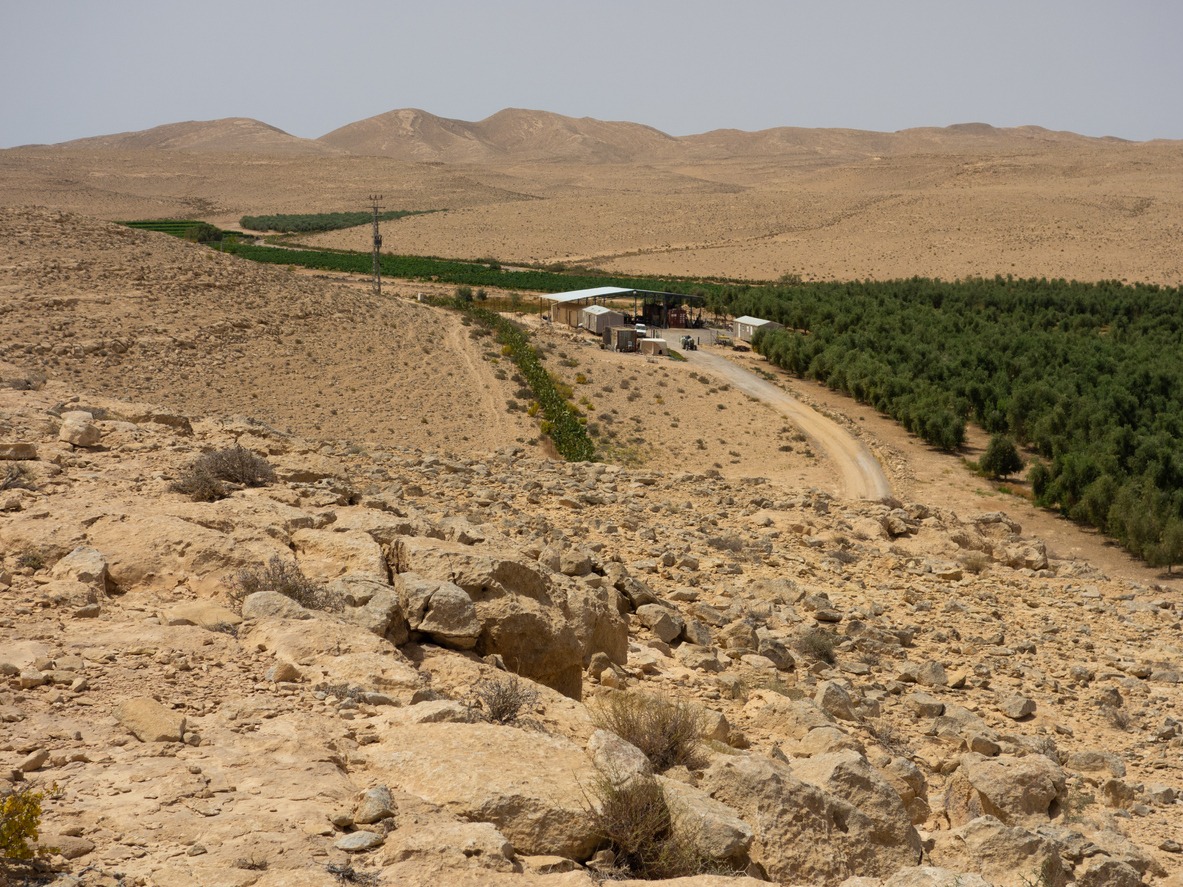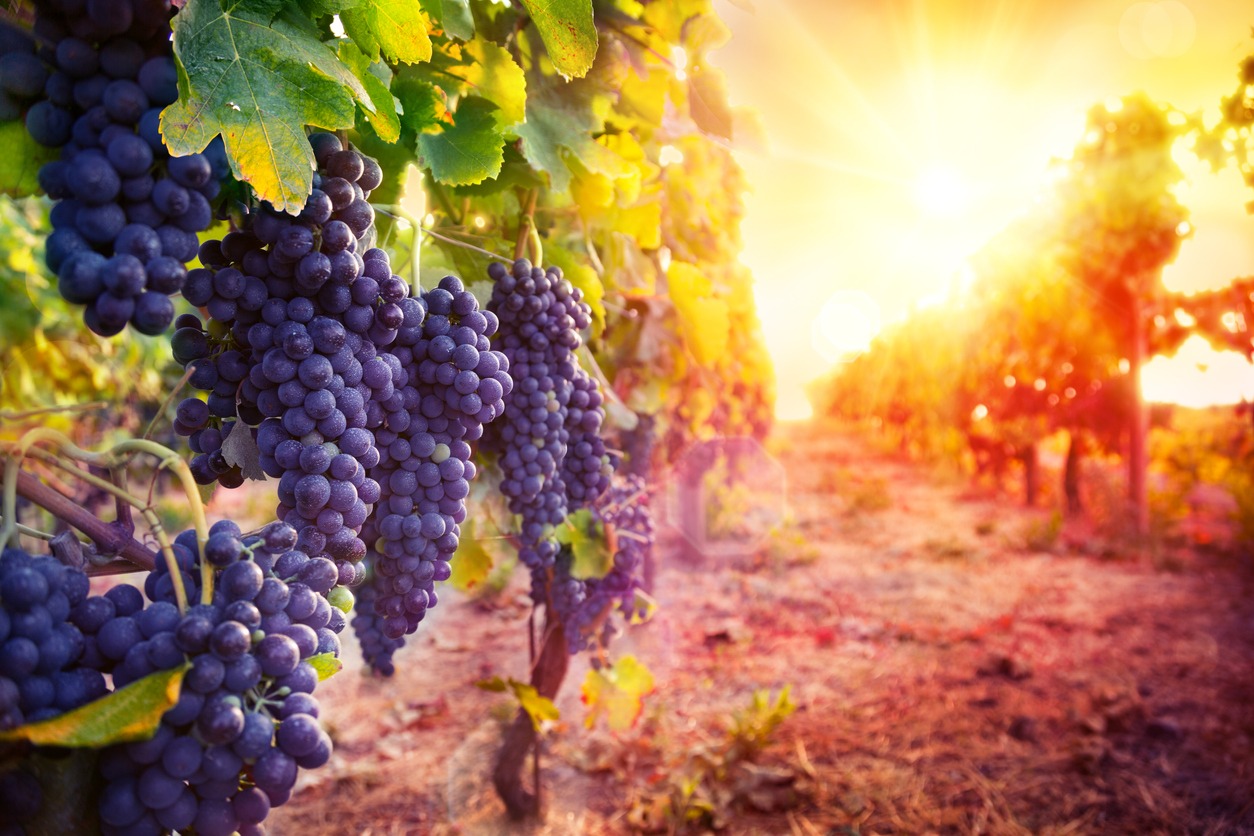Only some years ago, the idea of making wine in the dry, arid, sandy desert environment seemed impossible, even unimaginable. But Israel, known the world over for its trailblazing agricultural achievements, has made it a reality. One of the country’s most recent agricultural breakthroughs is a bourgeoning wine scene in Israel’s desert region in the south.
You may be led to believe that this is a result of a divine miracle of some sort. But growing wine grapes in a hot, sandy desert region is actually a successful product of the latest farming techniques and the brains behind them.
Over two decades ago, a small group of enterprising and intrepid vintners took a gamble on the Negev Desert, which gets less than 100 millimeters of rain every year. Wine grapes usually thrive under the Mediterranean climate, known for its hot, dry summers and cool, wet winters. But these pioneering winemakers, against all odds, were able to grow wine grapes successfully under inhospitable desert conditions. Combining their love for the land and state-of-the-art drip irrigation technology, these vintners overcame scorching heat and little rain to grow vineyards and create high-quality wines.
And now, the vineyards are a lush and verdant oasis, perfectly contrasting the drab and barren landscape. It’s the picture of the success of Israeli desert winemaking where, only some years ago, the idea was practically unheard-of. However, this unprecedented breakthrough also teaches a thing or two to the other winemakers about adapting to climate change while producing high-quality wines. These Negev Desert wines are at par with some of the most famous premium wines in the world.
The Negev highlands produce around 4% of Israel’s wine production – the smallest compared to the other wine regions in Israel. Nevertheless, it is a thriving industry in the midst of the vast, dusty landscape. The ingenious and dedicated winemakers in the Negev are able to fulfill the dream of Israel’s founding father, David Ben-Gurion, of making the desert bloom.
If you have been to the famous wine regions of France, Italy, and the United States, and crave something new, the Negev Desert wine scene will provide you with an unusual wine tour experience that you will never forget.
Here are some of the best-known wineries in the Negev:
Sde Boker Winery
(Winery Road 1, Sde Boker)
Located in Kibbutz Sde Boker, Sde Boker Winery was the first winery to open in the Negev. It was an experimental project between winemaker Zvi Ramek and the Hebrew University’s School of Agriculture to test the possibility of growing quality wine grapes in the desert. Remek, who studied agronomy in San Francisco, concentrates on creating handcrafted wines made from Cabernet Sauvignon and Merlot grapes, and aged in oak barrels. When you’re in the kibbutz, you can combine a visit to this winery with a tour of Ben-Gurion’s home.
Yatir Winery
(Tel Arad Junction)
Yatir Winery was founded in 2000 in Tel Arad, an archaeological tel (mound) 900 meters (2,952 feet) above sea level on the outskirts of Yatir Forest. The vineyards were first planted three years prior. It was a venture between the local viticulturists and Carmel Winery. While Yatir is 100% owned by Carmel, it operates independently.
Its chief winemaker, Eran Goldwasser, is a graduate of Adelaide University in Australia and worked in several Australian wineries before joining Yatir. Goldwasser applied his expert knowledge in the wine industry in propelling Yatir Winery into one of Israel’s high-end boutique wineries. The winery concentrates on making wines mainly from Sauvignon Blanc, Cabernet Sauvignon, and Shiraz grapes.
Yatir makes individual wines from up to 60 vineyard lots each year. Following a rigorous tasting and selection process, the wines are transferred to the flagship Yatir Forest label or the second-label Yatir wines. The remainder of the wines goes to Carmel.
Nana Estate
(Road 171, Mitzpe Ramon)
After marveling at the breathtaking views of the Ramon Crater (Makhtesh Ramon) – the world’s largest erosion cirque – you are likely in need of some refreshment. Not too far from the Ramon Crater lies a lush oasis that makes up Nana Estate Winery.
This boutique winery was once a vision of a pioneering viticulturist Eran Ranz, nicknamed Nana, who had the ambition of making one of Israel’s least desirable areas for growing quality wine grapes.
In 2007, the vineyards were planted on the upper region of the Zin River at an altitude of 800 meters (2,624 feet) above sea level. Around 30 dunams (7.4 acres) of vineyards were planted that year, including Cabernet Sauvignon, Chardonnay, Chenin Blanc, and Petite Syrah grape varieties. Within a few years, Ranz’s vision transformed into a unique winery on the map of Israel.
A day at its visitor center will is guaranteed to bring an unforgettable wine tour experience in Israel. Wine tasting is professionally prepared and presented – with an excellent selection of cheeses, cured meats, bread, and fruits – with a characteristic Israeli flair, resulting in an authentic Israeli wine experience.
Carmey Avdat
(Midreshet Ben-Gurion, Sde Boker)
Carmey Avdat was the vision of the couple Hannah and Eyal Israel, who planted vineyards on the ruins of an ancient agricultural settlement. The hand-harvested Cabernet Sauvignon and Merlot grapes undergo processes that give Carmey Avdat a unique “desert” flavor and aroma.
Being a boutique winery allows Carmey Avdat to experiment and try with various flavors and processes. It also has the distinction of being Israel’s solar-powered winery.
Carmey Avdat continues to introduce new varieties of wine grapes to evaluate additional types of wines that will suit well to the desert environment. Aside from the classic varieties of grapes, Carmey Advat also grows grapes for its refreshing rosé wines. Carmey Avdat makes sure that visitors will be instantly reminded of the Negev by the unique taste and aroma of its wines.
Like most wineries in Israel, Carmey Avdat also makes kosher wines, such as the Mehadrin wines for Passover. (Mehadrin is the strictest form of kosher).

